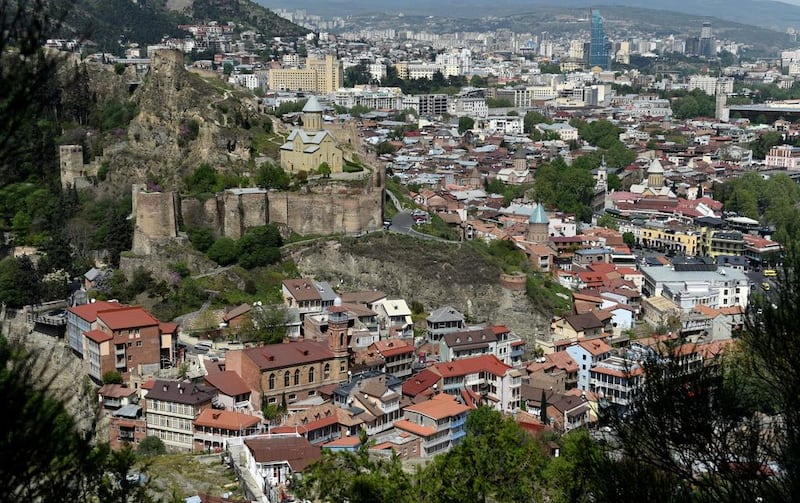Azerbaijan opened a long-delayed railway through the Caucasus region that is intended to become a new transport corridor for goods carried between Asia and Europe.
“The opening of the railway is of historic and strategic significance,” the Azeri president Ilham Aliyev said at a ceremony on Monday in the Caspian port city of Alat, south of the capital, Baku, to mark the departure of the first trains. The line from Baku through the Georgian capital, Tbilisi, to Kars in Turkey is “the shortest and most reliable link between Europe and Asia”, Mr Aliyev said.
The opening of the 846km route marks the completion of a 10-year project to provide an alternative to existing rail services carrying cargo from Asia to Europe that go via Russia and Iran. Passenger services are also planned to start along the route next year, including sleeper-car trains between Baku and Istanbul.
Initially scheduled for completion in 2010 and then in 2012, the railway suffered repeated delays as construction costs mounted. It failed to win financial backing from the US and the European Union because the railway deliberately avoided passing through Armenia, whose Soviet-era track would have offered the most direct route to Turkey. Azerbaijan and Armenia are in an unresolved conflict over the territory of Nagorno-Karabakh. Turkey closed its border with Armenia in 1993 in support of Azerbaijan as the two former Soviet neighbours fought a war over the disputed territory.
_____________
Read more:
Egypt signs deal with China for new rail link
India builds highway to Thailand to counter China's silk road
First direct London-China train completes 12,000km run
_____________
The railway will “carry Chinese goods to Europe in just 12 to 15 days,” said the Turkish president Recep Tayyip Erdogan, who also attended the ceremony with the Georgian prime minister Giorgi Kvirikashvili, Kazakh prime minister Bakytzhan Sagintayev and Uzbek premier Abdullah Aripov.
“The railway is a new Eurasian bridge, connecting not only the economies of our countries but also our citizens,” Kvirikashvili said at the opening. The link “will create completely new possibilities not only in our region but beyond.”
The railway is expected to transport 5 million tonnes of cargo per year initially, rising to 17 million tonnes over time, Mr Aliyev said. The port at Alat, which Azerbaijan says is planned to be the largest in the Caspian Sea region, will triple its capacity to 15 million tonnes of cargo per year when the first phase of an expansion program is completed in mid-2018, he said.
While the line offers a shorter route for transporting Chinese goods to Europe by rail, “the competition is really tough”, said Akif Mustafayev, the permanent representative in Azerbaijan of the intergovernmental commission of Traceca, an EU-backed transport programme. Azerbaijan and other countries on the route will have to offer lower tariffs and simplified customs procedures to win business and avoid delays, he said.
Azerbaijan hasn’t disclosed the total cost of the project, though it agreed to lend $775m from its sovereign wealth fund to Georgia to finance work on the Georgian section of the railway.






